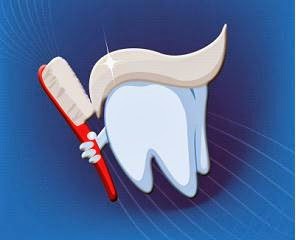This article explains how to choose a family dentist for a healthy mouth and a beautiful smile.

For a healthy mouth and a beautiful smile, it’s crucially important to brush and floss twice a day and visit your dentist every six months. Your Silver Spring dentist can assess the condition of your teeth and gums, and also recommend treatments for tooth decay or gingivitis if necessary. This will help you avoid potential future problems, like losing a tooth or having a mouthful of painful cavities. The dentists in Silver Spring MD keep records of all past treatments, so it’s important to find a good dentist and stick with that one for as many years as possible. This is why it’s so important to pick the right dentist in the beginning. This article provides some useful tips for seeking out and finding the right dentist for you and your family.
Make a List
If you are moving to a new community, finding the right dentist can be a daunting task - especially if you don’t know many people who you could ask for a personal referral. It can also be challenging to find the right dentist if you are switching to a new dentist from a previous one. Here are some things to consider.
Is the location of the dental office itself an important factor for you? Are you seeking the convenience of finding a dentist whose office is near your home or workplace? Or are you willing to drive out of your way to get to the right dentist?
If you are moving to a new community, you might ask your current dentist if he or she has colleagues in the community where you are moving to that he/she might be able to refer you to. If you have friends or family members living in the community where you are moving, ask them what dentist they use. Conduct online searches using google, ask Facebook friends, and read the reviews of dentists in your community on Yelp.com. This can be a useful starting point. Make a list of two or three different dental offices to go to and check out.
Narrow Your Search
After making your list of potential Silver Spring dentists, visit the locations if possible and take note of what you see and experience. Is the location convenient to an area of town where you frequent? What are the hours and availability of the dentist? What is the friendliness and helpfulness of the staff? What services are offered and what insurances do they accept? Is the dental office easily accessible by car or public transit? Does the dental office offer emergency dental services? Will the dentist office be able to accommodate your whole family? Do you have special requirements, such as the need for dental implants or cosmetic dentistry? Compare your needs with respect to the answers to these questions.
Book a Consultation

Next, determine which dentists on your list meet all or most of your criteria, and find out if he or she is currently accepting new patients. For those who are seeking new patients, find out when their next availability is. Make an appointment and go to “interview” the dentist and find out if you are compatible.
Make the Choice
After meeting with a few different dentists, reflect on your experiences at each office. Which office made you feel most comfortable? Which dentists seemed more compatible with your personality? Which office offers the widest variety of services or the particular specialty services you are seeking? Hopefully by now, you will have a lot of clarity about which dental office is right for you and your family.
 Dental implants in Maryland, on the other hand, have been around since the 1950’s. Restorative dentistry has grown increasingly more sophisticated in just the past twenty or thirty years, and dental implants are almost always chosen by patients instead of dentures or bridges. One of the many advantages of choosing dental implants over other alternatives is that they preserve the surrounding teeth, gum tissue, and bone tissue, preventing further dental complications. Implants can make a huge difference in the appearance of your smile, whether you only have one tooth to replace, are missing several teeth, or are currently wearing dentures.
Dental implants in Maryland, on the other hand, have been around since the 1950’s. Restorative dentistry has grown increasingly more sophisticated in just the past twenty or thirty years, and dental implants are almost always chosen by patients instead of dentures or bridges. One of the many advantages of choosing dental implants over other alternatives is that they preserve the surrounding teeth, gum tissue, and bone tissue, preventing further dental complications. Implants can make a huge difference in the appearance of your smile, whether you only have one tooth to replace, are missing several teeth, or are currently wearing dentures. Fitting for an implant is a technical process that requires a dentist with expertise in restorative dentistry. Your treatment may involve the services of an oral and maxillofacial surgeon. Most everyone qualifies as a candidate for a successful implant procedure. If it is safe for you to have a routine dental treatment, it is safe for you to receive an implant. You will also require some X-rays and an impression of your mouth. The insertion of the dental implant itself happens in one visit. Afterwards, you will be able to return to work or go about your usual daily activities the next day.
Fitting for an implant is a technical process that requires a dentist with expertise in restorative dentistry. Your treatment may involve the services of an oral and maxillofacial surgeon. Most everyone qualifies as a candidate for a successful implant procedure. If it is safe for you to have a routine dental treatment, it is safe for you to receive an implant. You will also require some X-rays and an impression of your mouth. The insertion of the dental implant itself happens in one visit. Afterwards, you will be able to return to work or go about your usual daily activities the next day. Your Appearance: In this image-focused world we live in, our appearance has a major influence not only on attracting a romantic partner, but also on achieving a successful career, influencing others, and being seen in a positive light by the people around you. We all want to have flawless skin, a toned physique, a flattering hairstyle, and stylish clothes, but the most important physical feature of all is perhaps one’s smile. It’s one of the first things people notice about someone when they first meet them, and stained or missing teeth can ruin a good first impression. It can also destroy your self-confidence. Let’s take a closer look at obtaining dental implants in Maryland.
Your Appearance: In this image-focused world we live in, our appearance has a major influence not only on attracting a romantic partner, but also on achieving a successful career, influencing others, and being seen in a positive light by the people around you. We all want to have flawless skin, a toned physique, a flattering hairstyle, and stylish clothes, but the most important physical feature of all is perhaps one’s smile. It’s one of the first things people notice about someone when they first meet them, and stained or missing teeth can ruin a good first impression. It can also destroy your self-confidence. Let’s take a closer look at obtaining dental implants in Maryland. Benefits of Choosing Dental Implants: Many decades ago, before modern dental technology advancements, when people lost their teeth the only options they had were dentures and bridges. These prostheses can temporarily solve a problem, but maintenance is difficult because you cannot floss properly with bridges. They also increase your chance of having a serious periodontal disease later on. Since bridges aren’t permanent, they don’t protect the gum tissue and bone from become increasingly unhealthier.
Benefits of Choosing Dental Implants: Many decades ago, before modern dental technology advancements, when people lost their teeth the only options they had were dentures and bridges. These prostheses can temporarily solve a problem, but maintenance is difficult because you cannot floss properly with bridges. They also increase your chance of having a serious periodontal disease later on. Since bridges aren’t permanent, they don’t protect the gum tissue and bone from become increasingly unhealthier. A. Multiple factors influence the success of the implant after it is inserted into your jaw. Perhaps the most important factor is the health and density of the jawbone itself. A healthy jawbone with good bone density will increase the occurrence of long term victory with the implant. An infected or osteoporotic bone will increase the risk of there being a complication. The second most important factor is, of course, the experience and ability of the dental surgeon. Because the insertion of a dental implant is a surgical procedure, it requires a highly skilled dental surgeon. The third most important factor is the quality of the restoration that is placed on top of the implant. A poorly constructed implant crown or overdenture, or an unbalanced biting force, can ruin any implant even if you have good bone and a good surgeon. Make sure the highest quality materials are used on top of the implant!
A. Multiple factors influence the success of the implant after it is inserted into your jaw. Perhaps the most important factor is the health and density of the jawbone itself. A healthy jawbone with good bone density will increase the occurrence of long term victory with the implant. An infected or osteoporotic bone will increase the risk of there being a complication. The second most important factor is, of course, the experience and ability of the dental surgeon. Because the insertion of a dental implant is a surgical procedure, it requires a highly skilled dental surgeon. The third most important factor is the quality of the restoration that is placed on top of the implant. A poorly constructed implant crown or overdenture, or an unbalanced biting force, can ruin any implant even if you have good bone and a good surgeon. Make sure the highest quality materials are used on top of the implant! A. There are a few different medical reasons why a person may not be a good candidate for a dental implant procedure. Anyone undergoing chemotherapy or radiation therapy, anyone with uncontrolled diabetes, those with parathyroid disorders, those with blood disorders such as hemophilia, or individuals with rare bone disorders or bone marrow cancer would not be good candidates for dental implants. Also, if the jawbone is extremely unhealthy or osteoporotic, or if a person has low sinuses or nerve bundles, the patient may have greater success choosing a bridge or denture instead of an implant.
A. There are a few different medical reasons why a person may not be a good candidate for a dental implant procedure. Anyone undergoing chemotherapy or radiation therapy, anyone with uncontrolled diabetes, those with parathyroid disorders, those with blood disorders such as hemophilia, or individuals with rare bone disorders or bone marrow cancer would not be good candidates for dental implants. Also, if the jawbone is extremely unhealthy or osteoporotic, or if a person has low sinuses or nerve bundles, the patient may have greater success choosing a bridge or denture instead of an implant.